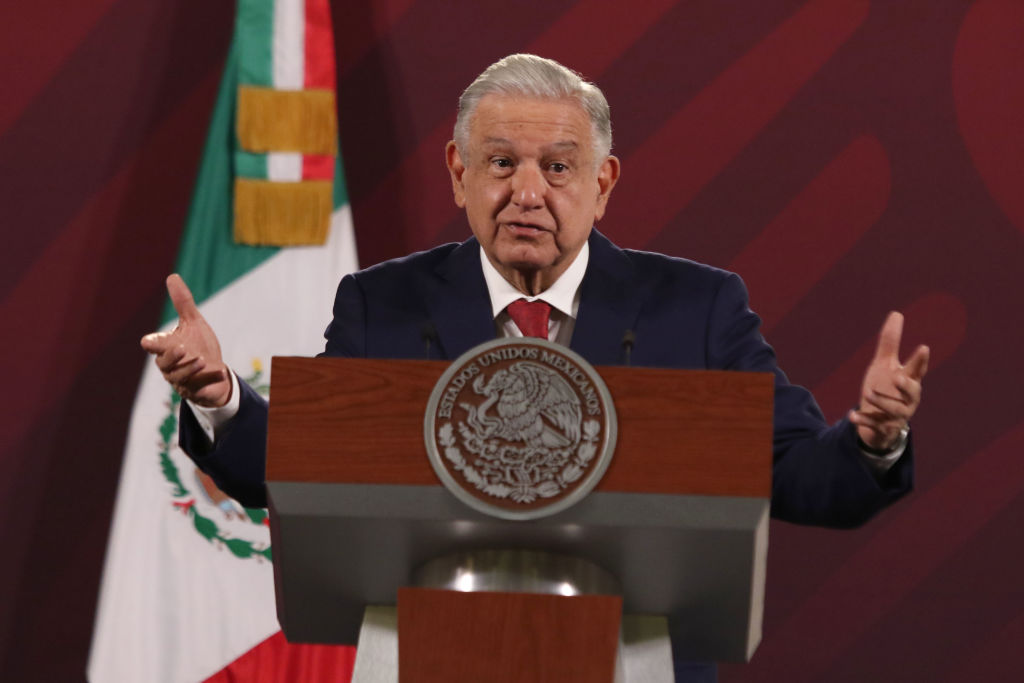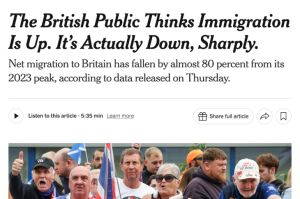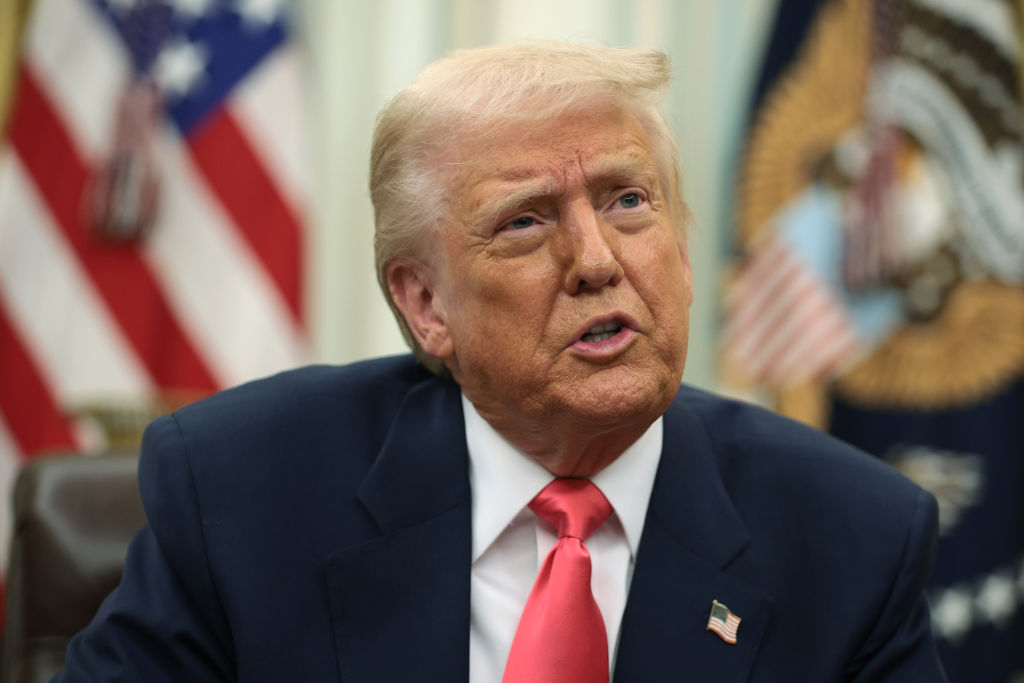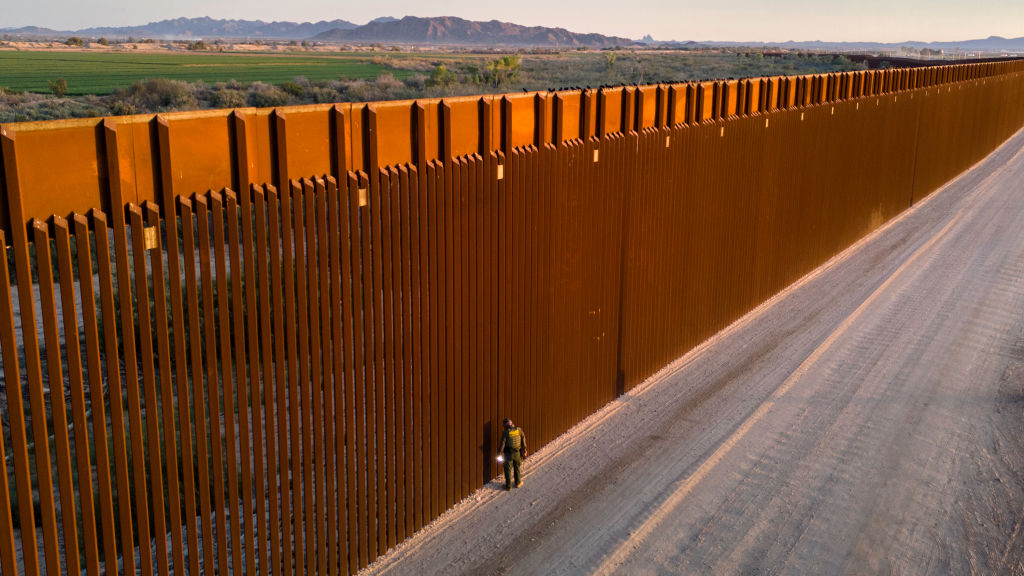Mexico’s president, the increasingly authoritarian and erratic leftist Andrés Manuel López Obrador, aka AMLO, visited Veracruz this past Friday to commemorate the 1914 American occupation of that city. In his remarks was a startling declaration: the Mexican state and military, under his leadership, will defend Mexico’s criminal cartels from the Americans.
“There is talk in the United States,” said AMLO, “of intervening and confronting organized crime, drug traffickers, treating them as terrorists and that for this reason they will come to ‘help’ us, to ‘support’ us to confront organized crime… we do not accept any intervention… if they did, it will not be only the sailors and soldiers who will defend Mexico, all Mexicans will defend Mexico.”
The remarks, shocking in themselves, went mostly unnoticed by US media, and unaddressed by a US State Department whose bureaucracy has been so friendly to AMLO — against the interests of its own countrymen — that even the New York Times runs stories on the American ambassador’s intimate relationship with the Mexican autocrat. This blind eye on the part of both American media and government is a mistake — because AMLO’s remarks in Veracruz were neither a one-off nor a misstatement. They are part of a pattern in which the Mexican state under this president has openly moved to end Mexico’s generational experiment in democratic liberalization, and toward a sort of cooperative symbiosis with its own narco cartels. Mexico is trading the uncertainty of a free society for a return to the old days of Mexican autocracy and stage-managed politics, underpinned by truly staggering corruption and an overt alliance with some of the most violent and terroristic organizations, not just in Mexico or this hemisphere, but the world.
Facile analysis of AMLO’s rhetoric focuses upon the traditional anti-Americanism of much of Mexican political society. This sentiment is real, but it’s unmatched in Mexican civil society — any American who has spent time in Mexico will tell you it is almost uniformly welcoming on the individual level — and therefore exists more as an instrument than a thing in itself.
Last fall, I had the privilege of addressing the eightieth anniversary gathering of the American Society of Mexico. There, in Mexico City, before an overwhelmingly Mexican audience, I called for the state of Texas to declare an invasion from Mexico under the US Constitution’s Article I, Section 10 authority. We expected a negative response from the audience. Instead, to our surprise, there was applause and, afterward, congratulations. Those who live the reality of AMLO’s Mexico know how far things have gone.
AMLO speaks of American conversations on, for example, the use of the United States military against Mexican cartels, or US foreign-terror organization, or FTO, designations for Mexican cartels, as insults to Mexican sovereignty. But AMLO has no similar concern for his country’s sovereignty when it comes to voluntarily surrendering 30 to 40 percent of the national territory to cartel rule — a figure estimated by former US ambassador to Mexico Christopher Landau and generally agreed by Mexican security analysts to be broadly accurate. That surrender is a choice, not imposed upon the Mexican regime, and should be understood as a signal of the AMLO-cartel alliance that, by now, is one of the defining features of the Mexican state.
Understanding the existence of this Mexican cartel-state nexus — in conjunction with the multiple crises emanating from Mexico including mass deaths from fentanyl, criminal violence and human trafficking in the millions — is the key to understanding why that American conversation exists. It is also key to why the solutions toward which it tends, specifically on FTO designations for Mexican cartels, and use of the US military against cartels, are the right ones. In the past few months, there has been a notable and bipartisan shift in DC-policymaker sentiment on these issues, from the Republican House majority discussing FTO designations for Mexican cartels and formal Authorizations for Use of Military Force in Mexico, to President Biden’s own secretary of state affirming his openness to the FTO designation. These moves would place AMLO and his regime in a difficult position that they are desperate to avoid — either cooperate with the United States in the restoration of (real) Mexican sovereignty, or defend the cartels that are a foundational element of his autocratic regime.
The Veracruz remarks strongly suggest that AMLO has made his choice — or at least wants the Americans to think he has. AMLO counts on a familiar array of American policy and bureaucratic reflexes to facilitate his escape from American-imposed consequences. For those of us who have watched Mexico policymaking for a long time US-side, the list is unsurprising. There are the State Department bureaucrats who know well the AMLO-cartel relationship, but cannot imagine any policy alternatives: call it the Saigon-1962 cohort. There is the business community that has for decades successfully kept US-Mexico trade and US-Mexico security de-linked, a failed approach that now requires revision. There is the well-worn ideological reflex among American progressives to valorize the very worst of Latin American autocrats, so long as they are of the left. And there is, even among some conservative policy institutions, a profound slowness to understand that the old paradigm of the US-Mexico relationship is over. The Mexican state is no longer a partner, and may well be en route to becoming something much worse.
In this scenario, an endorsement of a catastrophically failed status quo is policy malpractice.
All of this is well understood in Mexico itself. Conversations with Mexican journalists, policymakers, scholars and more, of left and right, all tend toward the same exhortation these days: the United States must put all options on the table — including FTO designations and the credible prospect of military force — if we want results from the AMLO regime. They themselves understand that the survival of their own hard-won democratic freedoms, now badly eroded, may well rest upon American resolution in this sphere.
It is past time for the policy community in Washington, DC, on both sides of the aisle, to arrive at the same understanding. The president of Mexico has spoken: his state will defend the cartels that kill Americans in our own homes and communities. We should do him the courtesy of believing him — and acting accordingly.

























